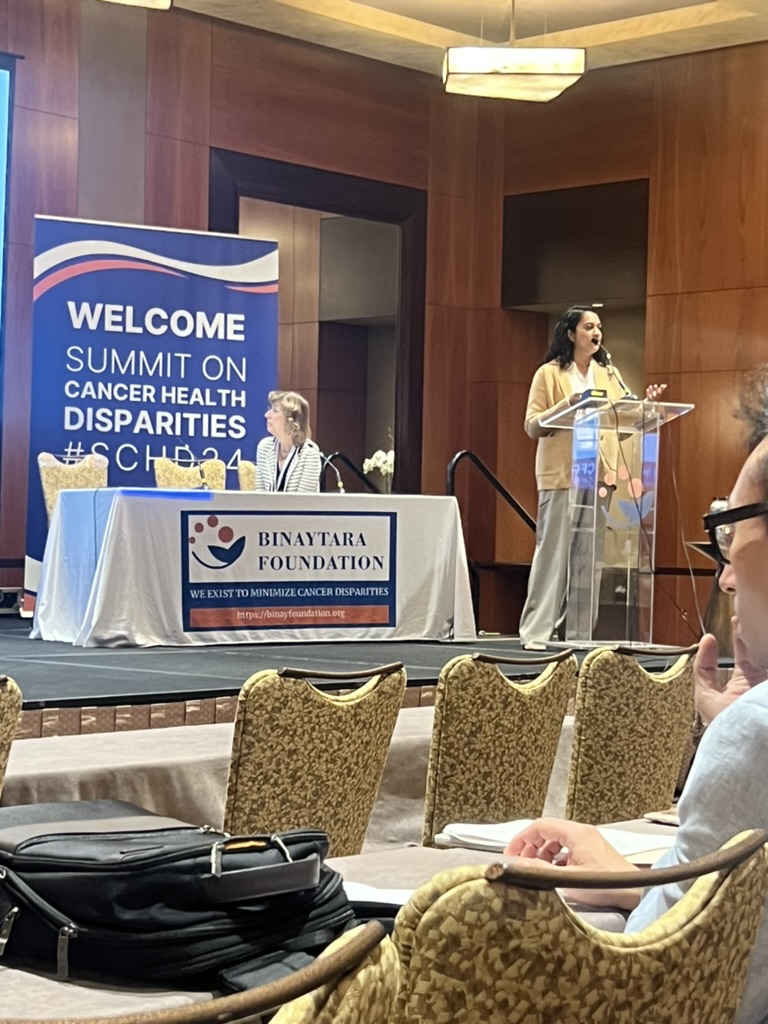By Dr. Kelly Meza
In Moffitt Cancer Center’s catchment area, the Hispanic population predominates, with most residents originating from Puerto Rico, Mexico, and South American countries. However, language barriers persist, with a notable portion speaking only Spanish. Despite advancements in cancer research and care, disparities persist.
To address these disparities, Moffitt Cancer Center employs a multifaceted approach, grounded in data-driven strategies, community partnerships, diverse workforce representation, and financial investment. One crucial aspect of their outreach involves cancer education and screening programs tailored specifically for Hispanic communities. Notably, 50% of workshops are conducted in Spanish, and free mammograms are provided, with 100% of screening access program users being Hispanic/Latina.
In clinical care, Moffitt has identified racial and ethnic differences in self-reported barriers to care among patients. Additionally, efforts to increase diversity in clinical trials have revealed underrepresentation of Hispanic individuals, despite efforts to engage the community through bilingual clinical trials education and outreach.
Research efforts, such as the ACTWONDER2S study led by Dana Rollison and Susan Vadaparampil, aim to increase referral and recruitment of Black and Hispanic patients to therapeutic clinical trials. This intervention, guided by a sociological model, employs a multi-level approach, combining community health educator-led outreach and navigation with digital interventions.
The ACTWONDER2S intervention, developed between 2022 and 2024, will be implemented from September 2024 to September 2026, focusing on increasing referral and enrollment of Black and Hispanic patients to NCI-sponsored therapeutic clinical trials. Moffitt aims to evaluate the intervention’s impact on patient referral and enrollment rates and its implementation outcomes.
Moffitt Cancer Center recognizes the importance of addressing disparities at every level of the organization. Community outreach and education initiatives are vital components of their efforts, as they work to increase clinical trial diversity and improve access to care for Hispanic communities. By embracing a holistic approach and leveraging all aspects of the organization, Moffitt Cancer Center is committed to reducing cancer disparities and improving outcomes for Hispanic communities. Through ongoing evaluation and adaptation of their strategies, Moffitt continues to lead the way in advancing health equity and ensuring that all individuals have access to high-quality cancer care.
Author Bio:
Kelly Meza is an Internal Medicine resident at Baylor College of Medicine, interested on pursuing a career on Hematology Oncology, research focuses on cancer disparities and understudied malignancies.
No conflicts of interest





